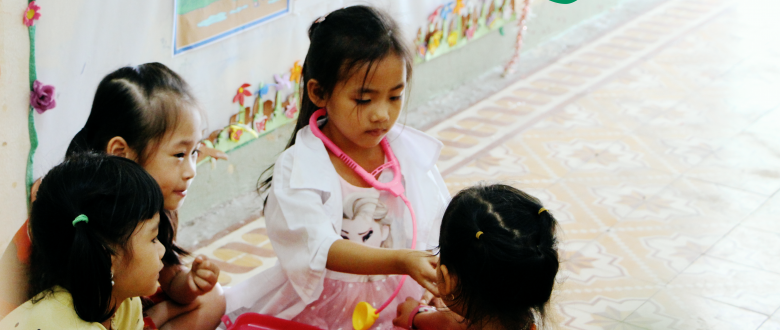
Gender stereotypes, discrimination and poverty are holding back millions of girls. According to Casvulu (2021), there is still much to do to ensure full and equal access to and participation in science for women and girls.
While more women are entering the STEM (science, technology, engineering, and math) workforce than ever before, women are still significantly under-represented in STEM occupations in many countries. Closing the global gender gap in STEM education and employment is crucial to empowering women and addressing the shortage of qualified workers in these fields in many countries. Tackling global challenges like climate change, the fourth industrial revolution or the digital divide and achieving sustainable development require the active involvement of educated women as well as educated men.
The participation of women in STEM is a complex problem which calls for actions from different actors, such as governments, private sector, families, as well the different levels of education (from childhood to higher education).
Globally, only around 30% of female higher education students choose STEM-related fields of study. Female students’ enrolment is particularly low in ICT (3%), natural science, mathematics and statistics (5%) and engineering, manufacturing and construction (8%). Women also leave STEM disciplines in disproportionate numbers during their studies, during transition to the world of work and even during their career cycle.[1]
Self-selection bias is considered to be the major reason for girls opting out of STEM, "as girls often do not consider STEM professions to be compatible with their gender. However, this ‘choice’ is influenced heavily by the socialisation process, during which girls learn and internalise stereotyped ideas about gender roles, including stereotypes about gender and STEM. There are two predominant stereotypes with relation to gender and STEM – ‘boys are better at maths and science than girls’ and ‘science and engineering careers are masculine domains’”, according to the UNESCO’s Cracking the code: Girls’ and women’s education in science, technology, engineering and mathematics (STEM) (2017) report. [2]
Gender stereotypes start to form in early childhood. Gender socialisation is reinforced in preschool environments through gender-specific toys and gender-based activities.
VVOB’s EU funded project GENTLE: play-based gender-responsive early childhood education in Vietnam promotes gender equality working with teachers, school leaders, parents and guardians. The project impacts the long-term cognitive and social-emotional development of 3- to 5-year-olds by using a pre-school gender-responsive play-based learning toolkit.
Cited from Casvulu,E. European Union.
References
Casvulu,E. (2021). Happy International Day of Women and Girls in Science. https://europa.eu/capacity4dev/education-and-development/discussions/happy-international-day-women-and-girls-science ( last accessed: 6th March 2021)
UNESCO, Cracking the code: Girls’ and women’s education in science, technology, engineering and mathematics (STEM), 2017, p. 20-22
UNESCO, Cracking the code: Girls’ and women’s education in science, technology, engineering and mathematics (STEM), 2017, p. 43




